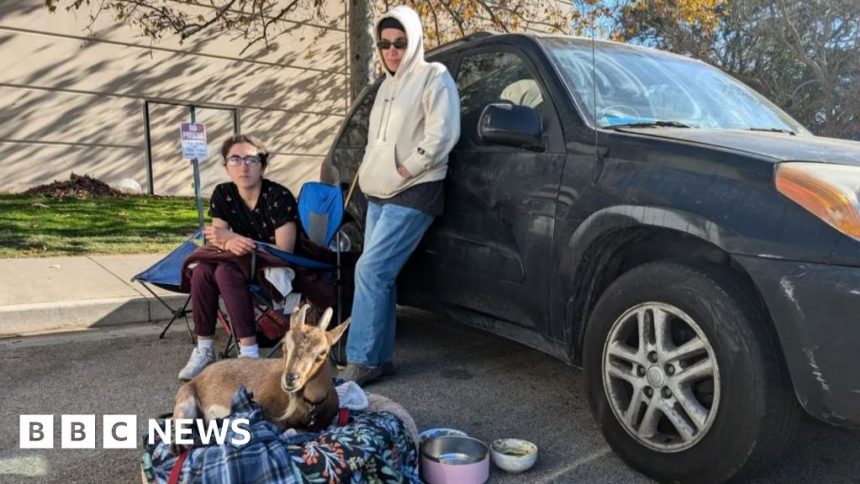LA fire victims fear new housing crisis
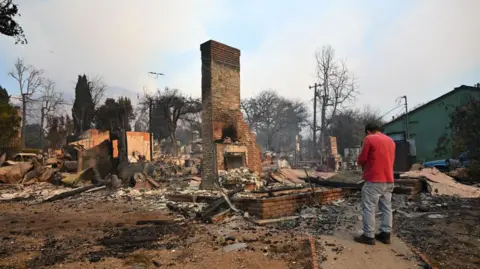 Getty Images
Getty ImagesMichael Storc and his family had just survived a devastating wildfire.
Now they have to face a daunting new challenge that he had hoped to never experience again – the Los Angeles housing market.
After losing the Altadena home that he owned in the Eaton fire, he was scouring for a new place to rent, and having little luck.
“What’s available is not nice at all and the rents have gone up a lot,” Mr Storc told the BBC. “I told my teenage daughter we had to accept we would live somewhere not very nice.”
The Los Angeles area already has one of the most expensive real estate markets in the country. And with thousands now displaced by the Palisades and Eaton fires, Angelenos are anxious that the sudden surge in demand could make rents and home prices soar even higher.
California has an anti-price gouging law that prevents landlords from raising rents more than 10% after the governor declares an emergency. It applies to both existing and tenants and new leases.
Many Los Angeles County buildings are also covered by rent stabilisation laws, which prevent landlords from raising the rent for existing tenants above a certain percentage even in normal circumstances.
“It is illegal. You cannot do it,” California attorney general Rob Bonta said at a Saturday press conference. “It is a crime punishable by up to a year in jail and fines.”
Not everyone was certain that the law would be completely enforceable, however.
“We’re aware of that but my question is, how is that being regulated? And who’s monitoring that?” said Jessica Heredia, a realtor based in the high-end Brentwood neighbourhood for the last 20 years.
If both a landlord and prospective renter armed with significant cash came to a private agreement, she mused, who would stop them?
Such arrangements between a renter desperate for shelter and a landlord happy to work with the highest bidder could wind up pushing the cost higher.
The median rent in the city of Los Angeles, for all home types – be it single family, apartments, or townhomes – was currently about $2,800 according to the real estate listing company Zillow.
The median rent for a two-bedroom apartment, a potentially tight squeeze for a family just starting over after a wildfire, is $2,995, according to Zillow data.
But prices vary wildly and can run significantly higher in the desirable neighbourhoods near the ocean that offer a similar climate and community to the Pacific Palisades.
In Los Angeles, the land of the movie star mansion, rents on the highest end of the market can climb well into the five figures.
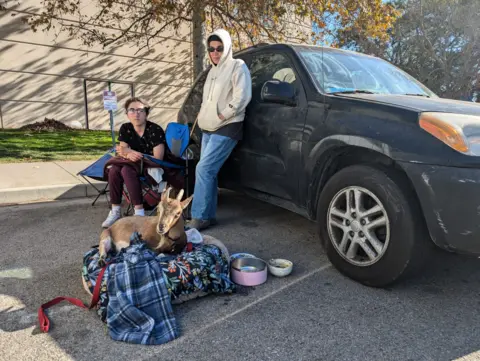
In Pasadena, the city nextdoor to devastated Altadena, the median rent for all home types was $2,600, according to Zillow.
Other Altadena residents who lost their homes in the Eaton Fire were starting to contemplate a new house search, and were already exhausted by the prospect.
The anxiety only grew as neighbours swapped anecdotal accounts of watching listing prices increase, and local outlets shared reports of individual rentals jumping by double-digit percentages.
Longtime area residents feared that the law that would not be enough to help them.
Jennifer Nazarian, 52, had just finished a two-year remodel of her Altadena home late last year. The family had celebrated Thanksgiving in a glistening new kitchen. Now the house has been reduced to a pile of smouldering rubble.
While she and her husband began navigating an insurance claim, they started talking to a real estate agent about finding a temporary place to live.
“We want to stay local and there isn’t much available,” she told the BBC as she waited to talk to the Federal Emergency Management Agency at a Pasadena emergency shelter.
She feared that the rental market was about to get much worse – potentially fuelled by eager landlords and agents.
“Everybody’s going to be like, okay, we need a bigger slice of the pie,” she said.
As the hillside communities burned, Los Angeles’s luxury realtors watched the housing market heat up.
Ms Heredia showed the BBC a database used by realtors to track fluctuations in rent prices.
Several high-end listings showed jumps this week; one home in Santa Monica promising “a private balcony overlooking the ocean”, which had been listed back in September, suddenly jumped from $29,995 to $35,000 on 10 January.
Ms Heredia said that some people were realising how competitive the rental market was and opting to buy instead.
There are no laws preventing a spike in the price to buy a home, she said, and individuals with the means wanted to move quickly.
Another realtor told the BBC she had also sent an email blast to clients, in case anyone was looking and needed help navigating issues with insurance.
Frustration with the real estate industry was palpable on Monday.
Ms Heredia and her colleagues with Coldwell Banker Realty had set up a tent outside an emergency center in Westwood offering a booklet they wrote called “navigating life after wildfire displacement”.
A volunteer, however, soon came over and asked them to leave.
“We just want to help,” Ms Heredia explained to the BBC. “Everyone’s trying to figure their way through this.”
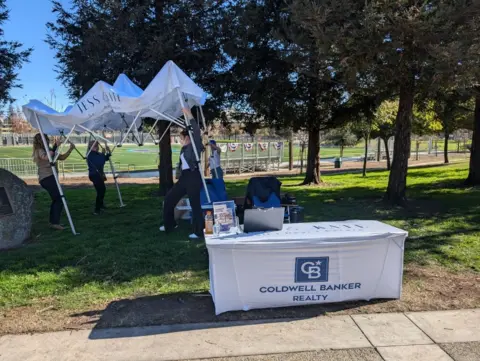
For the wealthiest affected by the Palisades fire, buyers could afford to pay millions in cash to secure a new house.
Yet there was a “tragic” misconception that all of the victims of the Palisades fire were wealthy, according to Pete Brown, a spokesperson for the area’s city council member, Traci Parks.
Many Palisades fire victims purchased their homes decades ago, possibly for prices as low as $25,000, he told the BBC.
“Their wealth was in that home,” Mr Brown said.
These elderly homeowners were now left with nothing, and stood little chance against today’s market, where buying a home for under a million dollars is considered just one step short of miraculous.
Other longtime residents found themselves daunted by the cold, hard maths of financing a new home in such an expensive market.
Up until a few days ago, Roya Lavasani lived with her husband and daughter in the Malibu condo building they purchased in the 1980s. On Monday, she was seeking help at a shelter in Westwood, after the multi-unit building burned down.
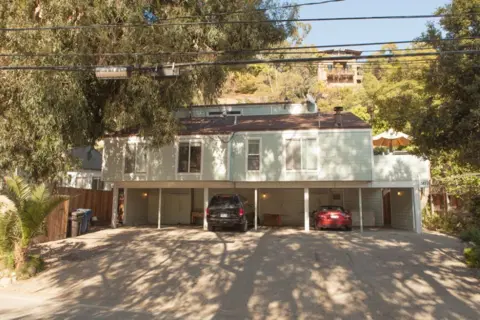 Roya Lavasani
Roya LavasaniMs Lavasani wept as she told the BBC she did not believe insurance would pay them enough to rebuild the complex, which had risen steeply in value since they purchased it.
They rented the other units in the building, meaning the family had lost not just housing but a portion of income. And there was little chance they could buy a property similar to the one they owned at today’s rates.
After temporarily sleeping in their car, Ms Lavasani’s family planned to rent an motor home for eight days. But after that, she he does not know where they will go.



